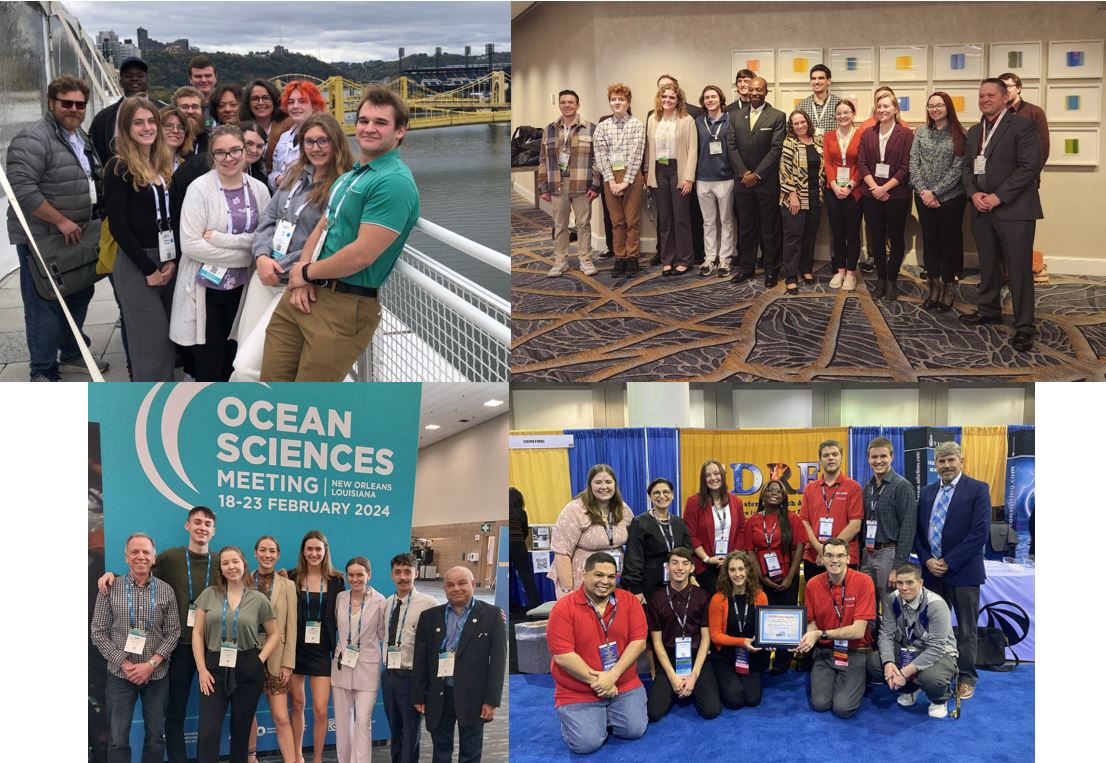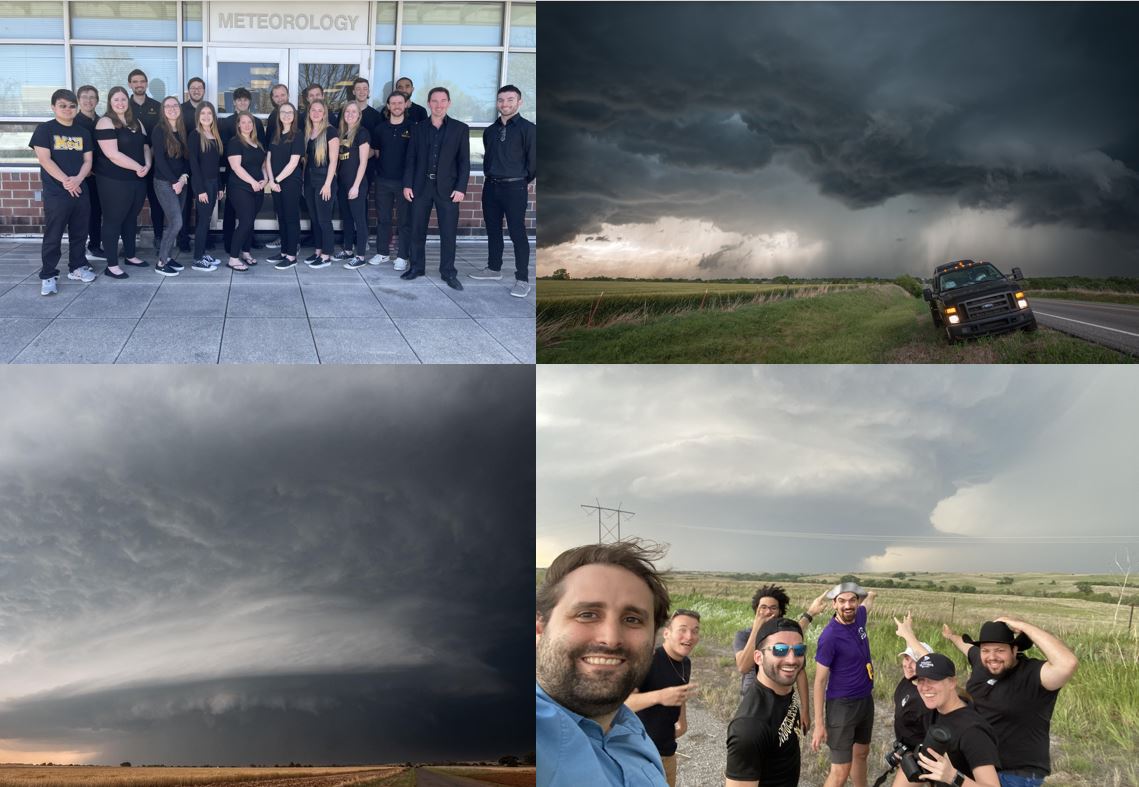Department of Earth Sciences
Welcome to Earth Sciences
CELEBRATING OVER 55 YEARS OF DISTINCTION - REQUEST INFORMATION
Welcome to the Department of Earth Sciences at Millersville University, where a passion for understanding our planet drives everything we do. We offer rigorous and comprehensive programs in the physical sciences of environmental earth and ocean sciences, geology, and meteorology. We also offer a unique program in emergency management that provides cross-disciplinary expertise in the science of natural hazards and the prepartion for and management of those disasters. In addition, we educate and prepare our future teachers through our comprehensive bachelors in secondary education.
With an enrollment of over 200 undergraduate students, our department fosters a vibrant academic community that is committed to both intellectual growth and practical experience. We pride ourselves on providing ample hands-on opportunities for our students whether it is launching weather balloons during winter weather events, collecting geologic samples to better understand tectonic history, or sampling coastal waters at our Chincoteague Bay Field Station. Our work continues inside where our students learn valuable skills such as geospatial information systems (GIS) and programming languages including IDL, FORTRAN, and Python. Our curriculum emphasizes real-world applications, ensuring that our graduates are well-prepared to tackle complex challenges.
Join us at the Department of Earth Sciences where you will find a supportive and stimulating environment where your curiosity can fluorish.
HIGHLIGHT VIDEO OF MU EARTH SCIENCES DEPARTMENT
At MU, you are more than just a number. Learn how faculty care for their students and prepare them for their careers in the video above.
degree programs Offered in earth sciences
Bachelor of Science
- Emergency Management (both online and in person)
- Environmental Earth and Ocean Sciences (EEOS)
- Meteorology
- Secondary Education in Earth Sciences with a teaching certification in Earth & Space Science.
Master of Science
Our MS programs are all offered fully online.
- Integrated Scientific Applications (MSISA) offers three specializations.
Graduate CertificateS
- Emergency and Disaster Management
- Space Weather and the Environment: Science, Policy, and Communication (SWEN)
STUDENTS Attend and PRESENT AT NATIONAL meetingS
The Department of Earth Sciences encourages our students to attend and present at our disciplinary regional and national meetings. Each year we send our students to the International Association of Emergency Managers (IAEM), the Annual Meeting of Geological Society of America (GSA) , the biennial Ocean Sciences Meeting , and the Annual Meeting of the American Meteorological Society (AMS). Student travel is supported by Millersville University grants, the student organizations, as well as the Department of Earth Sciences so that costs to the individual student are kept low to encourage maximum attendance at these disciplinary conferences.

LEARN MORE
Department of Earth Science Activities & News
project tiltting students Storm chase in the great plains
Remember the group of Millersville meteorology students who chased the EF-3 tornado in Mullica Hill, NJ, during Hurricane Ida? Under the leadership of Weather Information Center Director Kyle Elliott, they created the Thermodynamic Investigation of LCL Thresholds at Tornadogenesis and its Influence in the Northeast and Great Plains (TILTTING) project. For details on the project and how to support the students, visit TILTTING (millersville.edu/tiltting). Nearly 20 students are involved in the project, and 7 of them deployed to the Great Plains for a two-week period during May 2024 to conduct tornado research. Under the guidance of Dr. Greg Blumberg, this "chase team" released balloons to obtain atmospheric profiles of temperature, pressure, humidity, and wind velocity near supercells to assess the storm environment. While in the Plains, the students visited the Storm Prediction Center (SPC) in Norman, OK, and talked with forecasters on the operations floor. They met with two of the senior leads at the SPC - John Hart and Rich Thompson - and toured the vehicle bays at the National Weather Center to see the mobile radars and mesonets. On chase days, the team shared the data collected with SPC and local National Weather Service (NWS) offices. Overall, four Intensive Observation Periods (IOPs) were conducted during the two-week period, and the team is aiming to present their findings at upcoming conferences.

The students have also designed their own probes that will eventually be used to penetrate and measure wind velocity and pressure perturbations within the condensation funnel of a tornado. IOPs have and will continue to be conducted in the Northeast, with teams of 6-10 students deploying on a rotating basis. Three IOPs took place in the Northeast during Summer 2022, with another three happening during Summer 2023. Incorporation of this data into numerical weather prediction models will increase accuracy of severe weather forecasts, improve tornado warning lead times and, most importantly, save lives.
Air pollution study at mu
Millersville University's Earth Sciences Department has begun monitoring levels of air pollution in Lancaster County. See the link below for more details.

Millersville Alumni heads forecast office at the space weather prediction center
"Mike Bettwy’s career path was never in doubt. The Millersville University alumnus says he remembers being as young as five or six years old and discovering his interest in math, science and especially the weather, clouds and nature. Ever since the first grade, Bettwy knew he wanted to go into meteorology and forecasting the weather. Today, he works as the head of the Forecast Office at the Space Weather Prediction Center."
Read More - Millersville News Blog
-
Prospective Student Handbook
